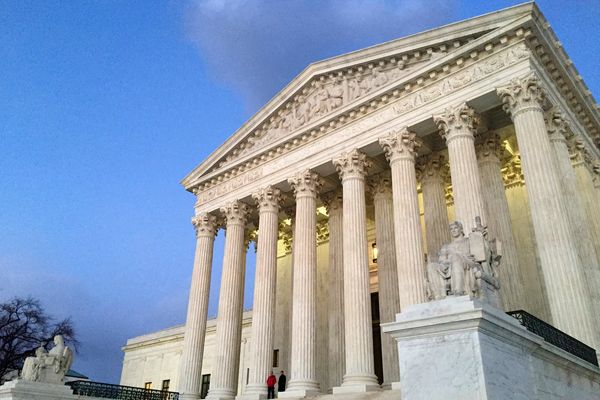
Polly Toynbee writes about Rishi Sunak’s cynical spring statement (I’ve covered countless Tory mini-budgets. The cruelty of this one shocked even me, 25 March). The day after it, my wife and I delivered a couple’s first-ever food bank parcel. Their door was wide open so as not to miss the delivery and they greeted us with the words: “We were down to our last tin of beans.”
Week after week we deliver to people who try everything to make ends meet to provide food and heat for their families. Many are working but not earning enough to meet basic needs; some are looking for work that doesn’t exist; some are casualties of a bureaucratic and punitive benefits system that is unable to respond to changes in people’s circumstances.
These are the people who have no savings or resources to call on when prices rise and incomes fall. These people are part of my community and the very people whom the privileged and wealthy people who run this government should safeguard. The failure to do so is not just negligent but cruel.
Peter Riddle
Wirksworth, Derbyshire
• With energy and food inflation at nearly 30% and 5% compared with 2021, many people can afford neither healthy ingredients nor the fuel to cook them (Food bank users declining potatoes as cooking costs too high, says Iceland boss, 23 March). As a result, poorer Britons are pushed into eating nutritionally inferior, fat-heavy convenience foods.
We’ve been here before. During the industrial revolution, according to the historian David Zylberberg, the high cost of fuel “forced inhabitants of many southern regions to abandon home cooking”. Deprived of the means to cook, Britain’s industrial workforce came to subsist on a miserable diet of white bread and sweet tea, not because they didn’t know how to prepare healthier meals, but because they could not afford to.
It’s deeply dismaying that the inequalities in today’s Britain are in so many ways returning us to the early 19th century.
Prof Rebecca Earle
Department of history, University of Warwick
• There has been much talk about raising standards in education. When will this government realise that it doesn’t matter how many more hours they spend in school or completing endless tests, children will not be able to concentrate and learn while they are hungry, cold or sleepy? Until the bigger picture of child poverty is addressed, higher standards in certain areas of the country will never be reached, despite the best efforts of our overworked, underpaid teachers. What a pity that the chancellor ignored the opportunity to begin this process in his spring statement.
Christine Kearns
Birmingham
• Polly Toynbee is right to criticise Rishi Sunak’s failure to aid our poorest. But she makes no mention of that sacred cow – inheritance – which could be milked to provide sustenance. The “give it away early” period should be increased from seven to 15 years, and the threshold lowered substantially. Our wealth is even more unevenly distributed than our incomes and provides scope for redistribution.
Alan Fairs
Bewdley, Worcestershire
• I do not understand the surprise at Rishi Sunak’s meagre offering to the worst-off (Rishi Sunak tackled over failure to help poorest families, 24 March). I am 27, and for as long as I can remember, the national conversation has been one of “scroungers”, “single mums on benefits” and rabid demands from the usual suspects in the media to make these people suffer. Why should it be surprising, then, that the present government is following the precedent of disregarding those at the bottom? This is not a new policy. Alternatives have been offered and rejected. Whether you like it or not, this is the UK that we have collectively chosen.
Adam Osborne
Bristol
• Have an opinion on anything you’ve read in the Guardian today? Please email us your letter and it will be considered for publication.







